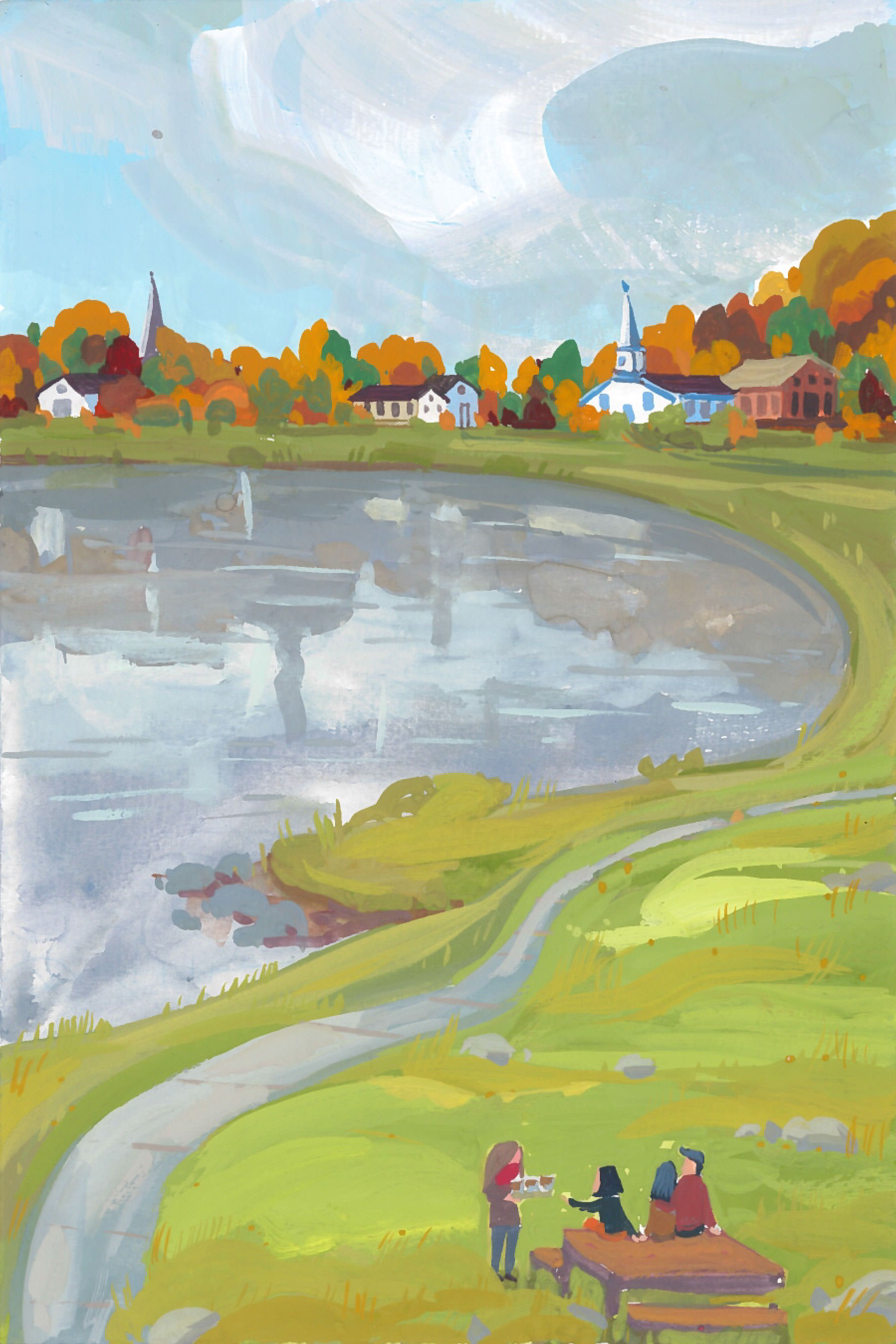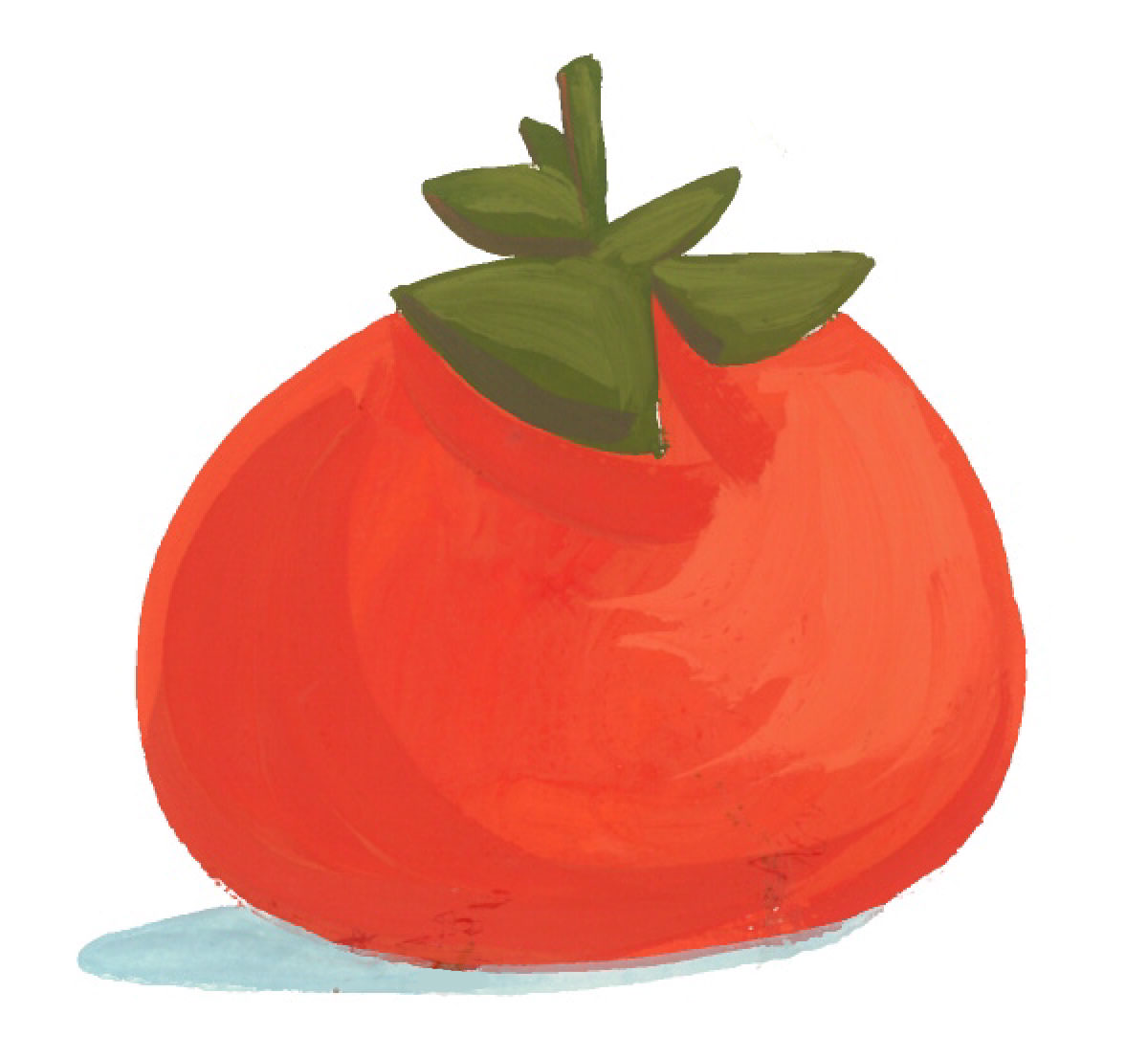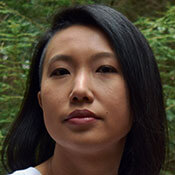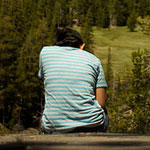
My mother and I never made things easy for one another. But she has come a long way in four years: from her silence and absence at my wedding, to gradual phone calls and a couple holidays.
Last year, my wife and I spent Christmas at her home. Our first morning there, my wife and I were headed out for a walk. My mother said she’d drive us to a nearby park. “Don’t walk here,” she said, “Not in my neighborhood.”
She said she had quit walking her own streets, too, to avoid unwanted questions about me, to avoid embarrassment, to live peacefully. To risk her own face — to dare to wear her shame in public, she said — would change no one’s mind about her queer daughter.
At one point, she ushered me out of the family’s earshot and into her coat closet. There was room for one of us, so I sat at the end of the closet on a chair that once belonged at the kitchen table. On either side, I was hemmed in by the thinning cotton dresses that she carried across an ocean. My mother sat across from me, just outside the door, in the other repurposed kitchen chair.
She spoke quietly. “This is my town, and you can be proud of who you are in your own town.” My New England town was a thousand miles away. “You have no right to ask me to change my life for you,” she said, “And you don’t understand yet how little the world can change.”

She folded her arms and leaned back in her sighing chair. “Besides — I know you never did value your own face.” She said this from time to time, seemingly worried I’d forget it otherwise. Folks say we look alike, but our faces — my face and her face — are so different.
And unlike my mother, I believed the world could change, that it does change and will change. She had changed her mind about me. She had made progress.
During the spring and summer of silence and the following years of awkward false restarts, I watched a lot of online videos of Asian mothers hugging queer children, of Asian mothers and their queer children speaking together at conferences, sharing the stories of how far they’d come. That, I thought, could be our story someday: the story of how far we’d come. That would be our testimony. Like mothers do, she’d had dreams of who I would be: namely, a heterosexual woman married to a man. And I had dreams of who she could be.
Now, she was again questioning whether we could love one another, whether it was easier for us to take a step back from each other. She wondered how many more Christmases we could do like this. She said the world would not change.
From inside the coat closet, I asked her, “Why don’t you believe the world can change?” Because, I told her, I believe it can.
But perhaps my mother didn’t disbelieve in the possibility of change as much as she feared it. She came to the United States from a changed and changing country, a Chinese province of restless revolutionaries, seeking peace. Now, she values a good tomato season and a freshwater fishing hole, and she doesn’t say much about herself. I think, after raising her younger siblings, she flew across the world to give her own life a shot.

But I was born with her old-country soil still clenched in my fists. Before that Christmas, I had assumed that she would follow the progression I’d seen in the videos I watched — that once she could learn to accept her daughter, together we could take on the deeply homophobic cultures in which we were planted. She would see that the world could change for the better. She would change it.
In the coat closet, between the dresses and in the midst of our exchange, I relinquished hope that my mother could be my ally.
• • •
Four years ago, I had worried that as the sole Christian in my family, my coming out to my mother would hurt what Christians call my “witness”: the theology I live to demonstrate to others who God is. How can you be a Christian, she asked me then, if you are gay?
I laughed because hers was a critical question that first drove me to despise organized religion as a child and that later tested my faith as an adult. But still, I mourned the straight-and-narrow path of easy answers and easy witness I left behind when I took the leap to live authentically as a queer Christian.
In the beginning, in those nascent years of my spiritual awakening, I wrote Bible verses in my mother’s birthday cards and lectured her for the difficult choices she’d made in support of her own agency. To become a Christian, I had put away my own existing beliefs in women’s agency, in the full humanity of LGBTQ folks, in restorative justice, and in a world that could be made better with human help. I believed that saving my mother meant I’d have to exorcise her seemingly un-Christian beliefs, too. After coming out to her, I worried that I’d set fire to my own rickety efforts at speaking the Gospel to a mother I believed wouldn’t know God in any other way but through me.
Indeed, my witness did change. Realizing that my dreams for my mother were implausible, I was confronted with an urgent question: If not for my personal vision of the kin-dom of God, then for what do I hope?
Following that question came the death of our noisy dreams: my mother’s dream of who I could be, and my dream of who my mother could be. In their absence and in my lament, I heard our breath, our tinny lungs, fast heartbeats, timid voices. Both of us were afraid, yet we longed to understand one another. Without illusions, there were no conditions. And without conditions, I learned to hope for something else.
• • •
A month after that Christmas, I had her name, which means “peaceful waves”, inked on the back of my right ankle. “Are you sure?” asked my wife. She remembered that morning in the coat closet. And all those years of strife before the coat closet.
But the tattoo was never supposed to be a sentimental gesture. Mama is my Achilles heel, and yet whatever I am stands on who she is and what she’s done. I am learning that reconciliation is possible not because we have done it, but because we are doing it.
Mama says she’s coming to visit in the fall. She says that she and my father are headed up the New England coast to view the foliage, that she’s stopping in town to see my wife and me for a day or two. I told her that I wanted to work on this relationship — on her and me. She said she’d do that, too. After all these years, she’s still seeking peace.
What I had thought was a logical, linear progression of our relationship — that the long silence would end, that we would learn to live in peace, and that she would then become my ally — is supplanted by a holy imagination, a meandering that has taken me to unexpected places, where the overlook is something like hope because there is something to be built there.
• • •
Imagining a journey of love, instead of a destination, is a kind of repentance of a more illusory love. This is a prayer for the Spirit to interrupt us with compassion when we can’t muster it ourselves.
I yearn for a kin-dom where Christians co-conspire for a complete justice beyond our earthly understanding, where inclusion is understood to be the birthright of all people, not a luxury hidden by the temple guards. And I yearn for a kin-dom where Mama is at peace. I think the Spirit has written a word of that kin-dom instruction — that blueprint — in each of us. In the coming kin-dom, Mama knows my word, and I know hers. If God has gifted us each with a word of instruction, then neither Mama nor I are exempt from that labor, that privilege.
I am learning, brick by brick, that the deeply imaginative work of co-dreaming and co-building the kin-dom must proceed from clarity and empathy for what is. There is space on earth for the cohabitation of lamentation and hope — lamentation for what is and hope for what could be. This is the strange and dizzying cocktail of the Christian faith: a Good Friday kneeling at the feet of a Resurrection Sunday to come.
Now, in lamentation and in hope, I’m meeting Mama in a space that neither of us fully understand, building a kind of love in a language I’m still learning. In the dark, I see Mama’s own lamentation and her own hope clearly — my hands around her face. And dimly, I feel that our faces are alike, and that we have the same long fingers, the same bony knuckles. We are written on each others’ bodies. We have always been cut from the same cloth.

Ophelia Hu Kinney (she/her) is a second-generation Chinese American living in Maine with her wife. She's the Director of Communications at Reconciling Ministries Network, and she's on staff at HopeGateWay, a vibrant and justice-seeking congregation in Portland. She writes to wrangle faith, identity, and the big little things.
